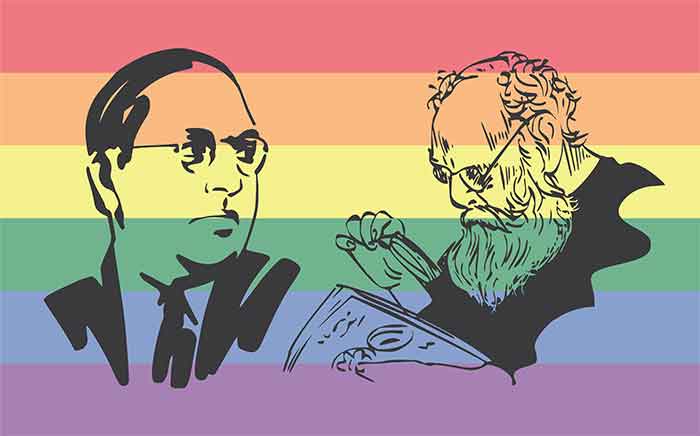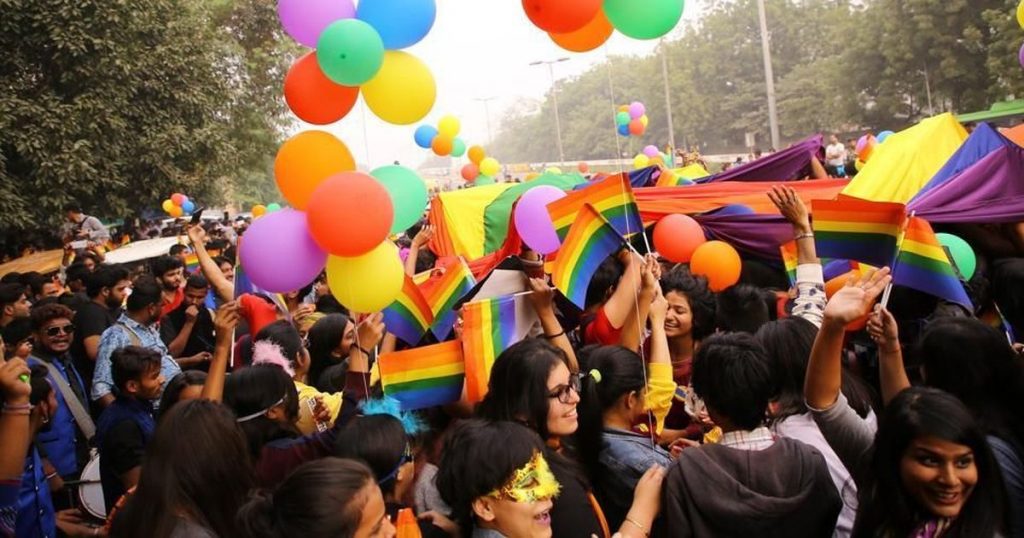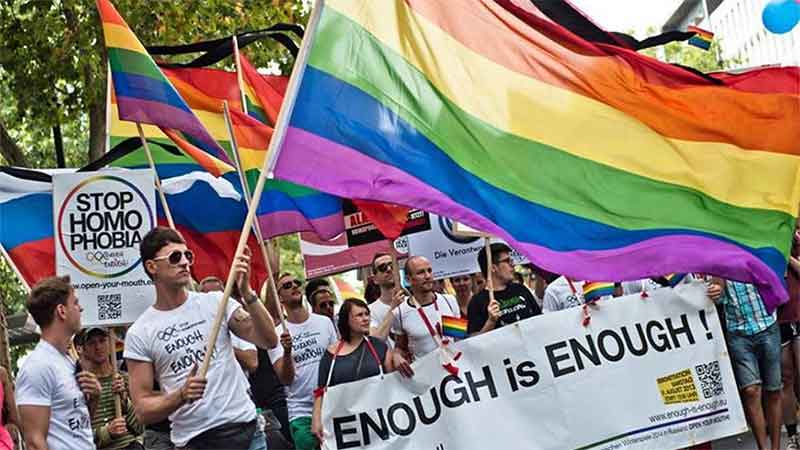
Recently, actor Samyuktha Hegde and her friends were assaulted by All India Congress Committee member and civic activist Kavitha Reddy at Bangalore’s Agara Lake. Reddy can be seen in videos put up by Hegde on her Instagram threatening to hit the women if they wore “such” clothes, charging at the women to hit them, inciting a mob to shame them for wearing the clothes that the women were wearing. Another person named Anil Reddy can be seen in a video threatening to tell the “media” that Hegde “consumes drugs”. Eventually, it took one sympathetic police inspector named Muni Reddy out of all the police who saw the incident transpire to even file the complaint lodged by Hegde and her friends.[1]
A friend of mine who was incensed by this sent it to our Instagram group. The videos were difficult to watch and left me feeling angry. After a while, I realised that I was angry not just because women and their clothing are subjected to moral policing in public. As a femme queer person, I myself am very conscious of the kind of clothes I put on my body. If the clothes are “masculine”, then all will be okay. But the days on which I decide to put on genderfluid clothing are days full of anger, anxiety, and fatigue. When I would sometimes wear genderfluid clothing to college and on the campus, I would be so conscious of people’s gaze. The men sometimes looked in a way where you could not figure out if they wanted to fuck you, hurt you, or fuck you to hurt you. I would speed up my walking to avoid being in public for a long time. Company of friends was also a respite on such days. There were some “good” days which were cut short because I was tired from being hyper aware of my surroundings to see if they are safe. On those days, I would retreat back to my room. Therefore, reading about and watching what happened with Hegde and her friends invoked for me all these instances of acting on one’s gender dysphoria and then being anxious about moral policing and violence.
Curious thing, isn’t it… brahminical patriarchy? It has things to say about how one should look, act, think, and feel. It teaches you how to behave with elders, how to interact with “upper” and “lower” caste people (coded in Marathi as “aaplé” and “parké”), what to feel about Muslims/Christians, to appreciate people who can speak the same language as you, to be careful with people who don’t speak the same language as you, to be suspicious of those “Indians(?)” who don’t look like us, which people to associate with in order to lead a respectable life, and so many more things. It is very educational. Another doctrine that it makes you believe is that your body is not yours. It belongs to the community. And therefore, if you alter it in ways that disturbs the community, you deserve whatever punishment is given to you. In the Bangalore case, Reddy felt entitled to attack Hegde herself and then use her political clout to incite a mob to feel the same offence she felt at Hegde’s clothing. Brahminical patriarchy has children doing unpaid internships to gain experience as males and females (heterosexual, of course). All their life, these would-be “men” and “women” are valued or devalued according to their caste, class, gender, ethnicity, language that they speak, colour of their skin, etc.
This bureaucratic arrangement gels really well with capitalism. Under capitalism, you have to be a definitive, productive entity. For non-queer people, it is laid out in a fairly straightforward manner. Dad has a job. Mom has a job and/or takes care of the house. Or the couple employ people to take care of the house. Grandparents relax after a lifetime of the grind. Children grow up to emulate the same. All the identities and roles are fixed. There is no room for queer ambivalence and fluidity like feeling masculine on one day and feminine on another. Or being assigned one sex at birth and growing to identify with another. That is all just “mental illness”. The volatility or hustle of life under capitalism does not have value and cannot be respected unless it makes you money. Find a way to make yourself and other people money from your “queerness” and later on we can talk about you as a human who has certain “inalienable rights”.
Having said all of this, I am not about to make a definitive, urgent, and sensational argument that as long as brahminical patriarchy and capitalism exist, “authentic” queer lives cannot exist! That is nonsense. Queer people exist despite all of this. I exist. My queer friends exist. The transpeople in India whose livelihoods have been wrecked by COVID exist. All these lives are operating under brahminical patriarchy and capitalism. And they are still queer.
But how? How are queer spaces created by people like Grace Banu, Vyjayanthi Vasantha Mogli, Rachana Mudraboyina, Bittu R, Vikramaditya Sahai (just to name a few names) possible in the face of brahminical patriarchy and capitalism? These spaces are certainly products of (on-going) emancipatory struggles on the part of these folx. The stories of these struggles are best represented by the respective individuals. In the past, I have been a queer person looking at these stories from the “outside”. This was a time before I had queer people whom I could call my chosen family, a time before I had met some of the people I mentioned above. Then, all I could see and hear was the pain, trauma, anxiety, and anger in their stories. Did it mean that if their queer life was marked by all of these experiences, my queer life is also defined in the same way? It was so overwhelming to think about this. But, I have come to realise that the image of queer suffering and only queer suffering is an incomplete image. The cowardice, violence, and insecurity of brahminical patriarchy and capitalism play a huge part in the construction of this image. But as I came into contact with other queer people, I got to know that it was possible to experience joy, love, relaxation, freedom, laughter, fearlessness like never before. In these healthy spaces, our individual pain, trauma, anxiety, and anger did not dissipate. They just had other companions.
I have come to realise that healthy queer spaces give queer people the opportunity to be shaped by, both, their joys and sorrows in conscious ways. These spaces are possible. In fact, struggles for emancipation (to put it very simply) might just be struggles to create more of these spaces for more sustained periods of time.
[1] TNM Staff. “Actor Samyuktha Hegde Withdraws Complaint against Kavitha Reddy.” The News Minute. September 09, 2020. Accessed September 12, 2020. https://www.thenewsminute.com/article/actor-samyuktha-hegde-withdraws-complaint-against-kavitha-reddy-132651.
Sujay M has completed bachelor’s with a specialization in Political Science from Symbiosis School for Liberal Arts and has a master’s in Sociology from University of Hyderabad. Email [email protected]
SIGN UP FOR COUNTERCURRENTS DAILY NEWSLETTER













































